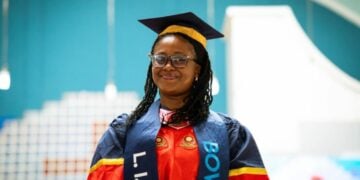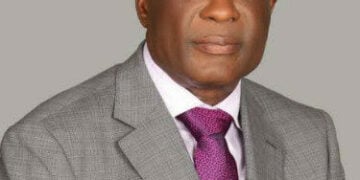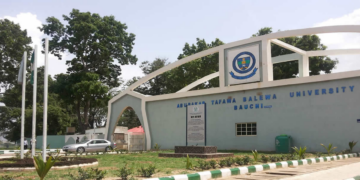Dr. DeWayne Frazier is the newly appointed Vice Chancellor of Yola-based American University of Nigeria (AUN). In this interview with HENRY TYOHEMBA, he speaks about his vision to drive new changes in the institutions, among other issues.
How has it been coming to Nigeria and AUN?
I’ll start out by telling you all that. I can’t say I was surprised, but I was very happy with the reception that I’ve received. Traveling around Adamawa state and right now it gets a really bad reputation from Western media, it gets a bad reputation from you know quite a few entities around the world saying oh, this place is unsafe this and that and I was urged not to come and not do that. And so, when I got there, I told people and I was just telling the students when they’re asking about safety, it’s like I feel much more safe there than I feel in Chicago, New York and other places. I mean, I’m treated so well. The American University of Nigeria has been like the people, the faculty, the staff, but not just that, like the people at the banks have been so helpful to help me. Nigerians have this culture that I’ve learned and watched for years because I’ve worked with international students for 25 years now. Nigerians are one of the most welcoming cultures in the world.
Can you give us the highlights of some of the things you want to do to further increase the competitiveness of AUN among other rising universities in the country?
One of the things that becomes important in an international university, because like I keep telling people, we’re not a Nigerian and American University only, we want to be an international global university. So, I’m actually working with things like Times Higher Education, which is the British outfit that does rankings. I’m talking with them about, maybe hosting a conference in the future to bring African colleges and universities there. We’re hosting more and more conferences. I’ve been enticing the faculty to do that, finding ways that they can do research but also to be able to host international conferences on our campus in Yola, it brings in business, it brings in revenue for my people in Adamawa, as well.
How safe Do you feel working in that region?
I feel really safe but I think like anywhere in the world, you have to be intelligent. I don’t go in the middle of the night walking around by myself, looking for you know, stands to buy my suya or anything. You know, when I go to the market, I don’t go by myself, I try to be smart. I have people that go with me but we don’t go and all uniforms everyone. Kidnapping still happens when they think that someone can be able to value ransom. So, what I do is be smart, be vigilant, and be aware of my surroundings. I have drivers that take care of me. But um, it was, you know, pretty amazing the way the people are. They’re just, you know, super nice with me and I think they care about my safety quite a bit. I couldn’t ask for a better security force. My security team, I was telling the students out there I’ve got people around the buildings that they are actually working with, they actually have their homemade guns that are up there. They mostly shoot snakes because there are snakes trying to come in, but there’s only one way in one way out of campus. And so, on top of that, I’ve got people going around in force. I’ve got police officers who are our police officers. Our security forces are stationed at every building on campus, every building including the resident halls, 24/7.
Any plan for medical school?
No, really what happens is whenever you’re doing a medical school, it’s one of the most expensive ventures that you can do because it’s very difficult to be able to get all the resources needed. The professor’s cost a little more money, everything. So what we are doing is starting with the foundation of nursing, public health, we might look at other things because we already have some biology courses that are in pre medicine type programs. If we can build these programmes and make them successful, it’s like building a house. We start to build that whole foundation. When we build that foundation, it makes it much more palatable to the NUC because we have other courses offered that can be cross listed, and then we can get closer to the dream of having a medical school. It’s in our plan in our minds that we want to be able to have a medical school just like we need more nurses in the area.
Anything on the Chibok girls?
So you know the Chibok programme. I’ve learned a lot about it in the last month or so. I’m very thankful to the Ministry of Women Affairs for working with us. They’ve been great partners. I want to see opportunities as the new administration of President Tinubu comes in and so there’ll be a new minister, as well. What I want to be able to do is find even more ways that we can help with other programmes. The Chibok programme got a lot of national attention because it was world known, like even in America in the most rural places in America we knew about what had happened there. But what people don’t understand and setting with the Ministry of Women Affairs, one of their senior officials looked at right in my eyes when we were in meeting and said you has been our best education partner we’ve had on any of these projects and said thank you so much for caring because not only do we take the money and help the young ladies be able to go get clothes because there’s a lot of kids at AUN that come from affluent families. We don’t want the girls wearing clothes that make them feel like they’re not you know, they’re substandard and have that complex. They also have Post Traumatic Stress, many of them. And so, our psychology services, psychiatric services have been stretched in our health services, because these are women that are 26 to 30 they’re not really girls anymore.




